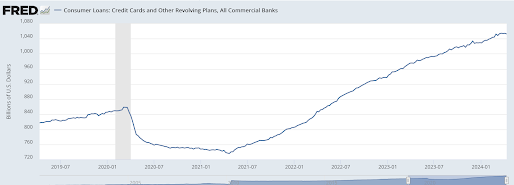(Drivebycuriosity) - The Federal Trade Commission (FTC), America`s mighty antitrust authority, filed a massive law suit against Amazon. FTC Chair Lina Khan claims that the corporation is a monopolist and stifles emerging competition (ftc.gov vox.com yahoo).
The Khan has a history of loathing and harassing Amazon. Back in the year 2014, when today`s FTC chair was a policy analyst at the left-of-center New America Foundation, she wrote a piece for CNN about Amazon`s conflict with French book publisher Hachett (driveby ). Amazon dared to reduce book prices and tried to sell e-books cheaper than printed books (no costs for paper, printing, storing & transporting). The Khan sided with the book publishers, who insisted on their rights as monopolists to set book prices, and complained about Amazon`s "brute exercise of power" and suggested to "drastically curb Amazon’s power" ( cnn).
In 2017 the Khan, then a law school student, wrote a famous paper: "Amazon`s Antitrust Paradox" ( yalelawjournal). She predicted that Amazon will become a monopolist and complained that Amazon´s prices are "too low" (!), which would drive competitors out of business and would hinder potential competitors to emerge. The Khan ignored history, economics and the continuously growing number of Amazon competitors ( reason yalelawjournal driveby).
Since then the Khan continued her attacks on Amazon. She claimed
publicly that the corporation is "guilty of
antitrust violations and should be broken up." ( wsj.com). In 2018, still a law student, the Khan presented her Amazon critique before the Stigler Center, a left-leaning organization ( StiglerCenter). Khan´s Amazon obsession impressed obviously President Biden, who called her Chair of the powerful FTC in 2021.
(twitter )
Today`s law suit is the crown of the Khan crusade and based on lies and economic illiteracy. Amazon is neither a monopolist, neither it stifles emerging competition. In the fourth quarter 2023 Amazon`s online stores advanced just 8% YoY, while Walmart`s e-commerce segment expanded 17% YoY in the US and 23% worldwide, obviously eating Amazon`s market share, at least part of it (amazon cnbc). Amazon is also losing market share to Shopify. The E-commerce platform boosted her gross merchandise volume (the total volume of merchandise sold on the platform) by 23% YoY, rebutting the claim that "Amazon stifles emerging competition" ( cnbc).
The Khan also ignores innovative newcomers ("emerging competition") who are aggressively entering the highly competitive e-commerce market (economist). Last September the Chinese online service TikTok launched its e-commerce shop, called TikTok Shop, in the U.S. "in an effort to translate the app’s cultural relevance among young consumers to sales" ( apnews npr.org). And the Chinese shopping app Temu, known from their Super Bowl commercial, is rapidly gaining ground (retailbrew ). Temu’s parent company PDD Group said revenue rose by 94% to 68.84 billion yuan ($9.62 billion) in the quarter ended Sept. 30 from a year ago ( cnbc).
Amazon is also losing market share to Shein, "the ultra-cheap fast-fashion app" (nymag).
New York Magazine claims that "Shein Found Amazon’s Weakness". Amazon already responded to the new competition and was
forced "to dramatically decrease the commissions it takes on cheap
clothing “ (nymag ).
Khan`s dislike of Amazon made her to a kind of Jeanne d'Arc of the left-wing and gets her support from Bernie Sanders, Elizabeth Warren & President Biden. It is clear that the Khan wants to destroy the Amazon we know.
The Khan attacks are not surprising. The FTC Chair belongs to a movement called Neo-Brandeisians (after Supreme Court Justice Louis Brandeis, 1916-1939), who are working on a fundamental change of America´s economic structure and try to expand the role of the government in the U.S. economy significantly ( pbwt.com dailyjournal promarket reason).
Since Lina Khan leads the FTC the authority represents a Marxist ideology, explained former FTC-Commissioner & Khan colleague Christine S. Wilson (ftc.gov ). According to Wilson the Neo-Brandeisians, who are now in control of the FTC, try to replace the market process of supply and demand by a continuously regulated environment. Wilson calls the FTC´s antitrust enforcement "a politicized exercise that serves as a tool of oppression".
The Khan tries to gain control over one of America´s largest corporations and to be in charge of Amazon`s business. The FTC Chair wants to tell Amazon what it can do and what not, how much the corporation charges their customers and how they deal with the business partners (nationalreview ).
Thanks to Amazon`s sheer size and efficiency the company can offer a wider selection of products, faster delivery and lower prices than competitors. The Khan treats these advantages as unfair (to competitors) and wants to restrict them. If her law suits succeeds Amazon may have to cancel Prime and customers will have to pay more and will have to wait longer till their orders arrive ( datainnovation). Millions of small businesses, who cooperate with Amazon, will lose an efficient platform to sell and connect with consumers ( cato).
The Khan attack throws already a lot sand into the gears of a successful company, which belongs to the engines of the US economy. The law suit reduces Amazon`s ability to further innovate. It is already occupying management capacities and slowing decision processes - making Amazon`s business more complicated and costly. If corporations get punished for being efficient and for keeping costs low, it will slow economic growth, raise price level and reduce living standards of low income households who depend on purchasing cheap goods.
The consumers are the losers. They have to
bear these costs by paying higher prices and are getting reduced selection and quality of goods
& services.






















